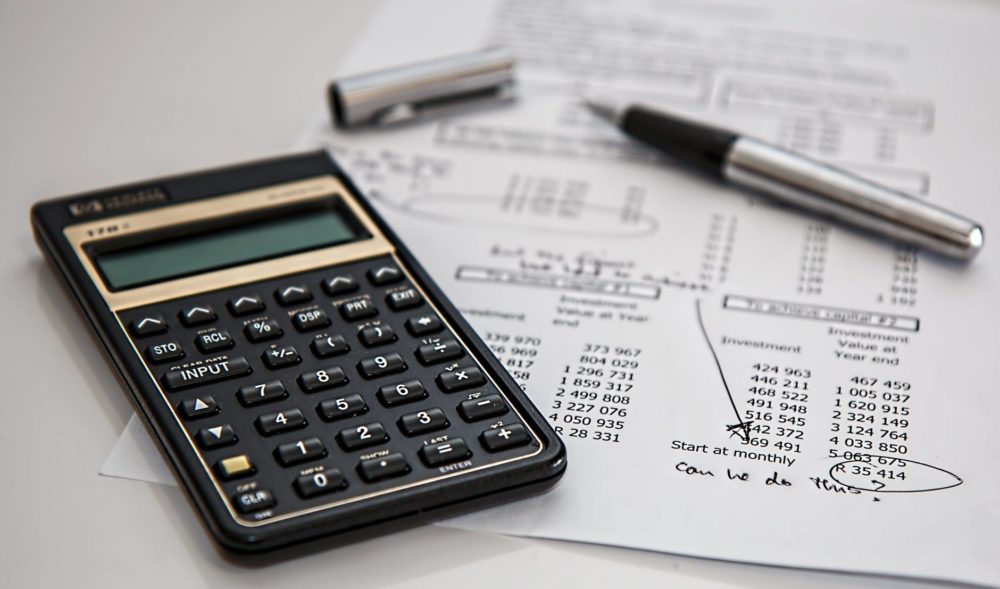As a personal finance blogger, I get a lot of questions from readers about how to budget on a variable income. Budgeting is hard enough for most people.
Throw in an income that varies wildly from month to month, and it’s no wonder people get frustrated with trying to find a budget that works!
*Disclosure: This post may contain affiliate links. Read our full disclosure policy here.
There are three different options I would recommend for those of you who are trying to budget on a variable income.
- Living on last month’s income
- Budgeting from paycheck to paycheck
- Estimating your worst month and creating a bare bones budget based on that
I’m a big believer that what’s right for one person isn’t necessarily right for another. We all have our own unique journey.
What makes sense for a freelancer who has no clue what her income is going to be might be very different from what a salesperson should do if he has some insight into what his commission might be next month.
Let’s examine each of the three options.
Living on Last Month’s Income
This option is my preferred method. If you budget using last month’s income, you know exactly how much money you have. So how do you budget this way?
First, put $1,000 into an emergency fund, pay off any debt you have next, and lastly, create a checking account “buffer”. Once your buffer equals one month’s total budget, you’re ready to begin!
Budgeting using last month’s income is smart because:
- It simplifies the budgeting process. You don’t have to estimate how much money you’ll earn. You already know what you have.
- It reduces financial stress. You don’t have to worry about falling behind or “timing” your bills based on when you receive your paychecks.
- It encourages you to spend less than you actually earn (assuming you earned less last month).
Budgeting Paycheck to Paycheck
This is an option I’d recommend for someone who has some insight into what his or her pay will be in the future. Let’s say you earn a salary every two weeks and you also earn a commission once per month for the prior month.
Maybe your commission is paid out on January 25th, but you earn that commission in December. By the end of December, you might know exactly what your 1/25 commission will be or perhaps you’ll at least be able to estimate it based on how well you (or your company) did in December.
If that sounds like you, congrats! You’ll be able to budget much more precisely since you do have some insight into how much money you’ll be making.
In this situation, I’d advise creating a budget for each paycheck. You can create a budget for your salary checks (which don’t change). This budget should include your most important bills (or all of your bills, if it’s enough to cover all of them).
If you can’t cover all of your bills with your salary, start with the highest priority ones like your rent or mortgage, groceries, and transportation.
Once you know what your commission will be, create a budget for the commission check. This would include your less important bills (possibly) as well as any discretionary spending and/or extra amounts that you’re putting toward paying off debt or building savings (depending on your current financial goals).
If you don’t know exactly what your commission will be but you have a good idea, use the lowest amount you think your commission could be to create the budget. Let’s say you think your commission could be anywhere from $2,000 to $3,000.
Use $2,000 to create the budget. If it ends up being $3,000, you can use that extra $1,000 for savings or paying off debt. Decide what any extra amount will go toward ahead of time so you aren’t tempted to blow it!
Estimating Your Worst Month
Let’s say you’re a full-time freelancer and your income varies from $3,500 to $10,000 per month. How do you budget when it varies that drastically and you have no way of knowing what it’ll be in advance?
The answer is to use your worst month’s income. If the worst month you’ve had as a freelancer netted you $3,500, use $3,500 to create your budget. You’ll start with covering your basics, like food and bills.
Next, make a list of lower priority items. If you earn, say $4,000, you can use that extra $500 on the lower priority categories of your budget. If you earn $10,000, that extra $6,500 should go toward a goal, such as paying down debt or saving for retirement.
Budgeting on a Variable Income
Budgeting on an inconsistent income isn’t impossible! If your income varies from month to month, try one of the strategies outlined above to create your budget.
Need a little help creating your budget? Check out our budget bundle which comes with six budgeting worksheets to help you get started!
Are you tired of feeling broke?
Our budget bundle can help you get on track!




Recent Comments